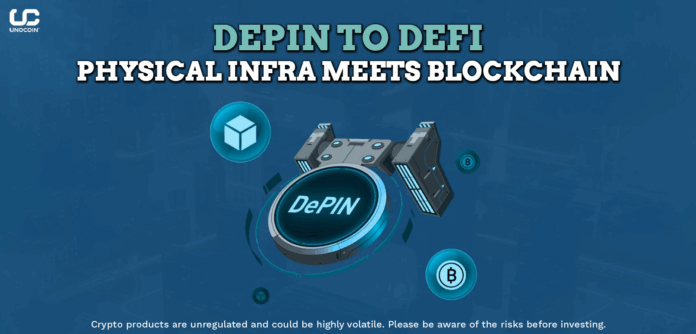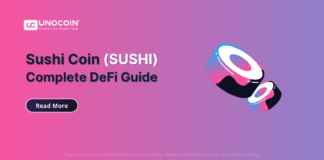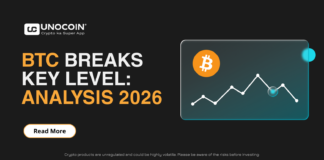As the crypto space matures, a fascinating convergence is underway—Decentralised Physical Infrastructure Networks (DePIN) are integrating with Decentralised Finance (DeFi), unlocking real-world utility in the blockchain world. This fusion marks a pivotal shift where crypto isn’t just digital—it’s embedded in the physical world, from wireless networks to storage and energy grids.
What is DePIN?
DePIN refers to blockchain-based systems that incentivise the building and operation of physical infrastructure by individual participants rather than centralised corporations. Think decentralised alternatives to companies like Uber, Amazon Web Services, or even telecom giants—where anyone can contribute hardware (routers, storage, solar panels, etc.) and earn tokens in return.
Prominent projects include:
- Helium – decentralised wireless infrastructure
- Render Network – GPU computing power sharing
- Filecoin – decentralised data storage
- HiveMapper – community-driven mapping using dashcams
These networks decentralise critical infrastructure and reward users through token economies, making them more democratic, censorship-resistant, and cost-efficient.
Why DePIN Needs DeFi
While DePIN builds real-world systems, DeFi provides the financial plumbing to support them. DeFi protocols offer lending, borrowing, staking, insurance, and liquidity—vital for the growth and sustainability of DePIN ecosystems.
For example:
- DePIN participants can collateralise their earnings or hardware in DeFi lending markets.
- Token incentives from DePIN projects can be staked in DeFi pools for passive income.
- Real-world usage data (e.g., solar power generation, data bandwidth) can become on-chain assets, allowing fractional ownership, leasing, or trading.
The result? A more composable and liquid economy where physical output feeds financial instruments—creating a closed loop of productivity and reward.
India’s Opportunity in DePIN–DeFi Fusion
India, with its vast population, entrepreneurial energy, and digital penetration, is uniquely positioned to benefit from the DePIN x DeFi model:
- Rural connectivity can be revolutionised with decentralised internet (e.g., Helium-like networks).
- Solar power producers can tokenise surplus energy and earn on DeFi platforms.
- Data centres and storage hubs in Tier-2 and Tier-3 cities can earn Filecoin while participating in decentralised cloud networks.
By integrating with DeFi, Indian users and developers gain access to global liquidity, capital efficiency, and programmable finance—without needing centralised intermediaries.
Challenges and the Road Ahead
The DePIN–DeFi model is still nascent. It faces challenges such as regulatory uncertainty, network coordination, hardware cost, and user education. However, platforms like Unocoin can play a crucial role in bridging the gap—by offering:
- Secure wallets to manage DePIN earnings
- Easy onramps to stake or lend tokens via DeFi
- Educational resources and campaign support to onboard users
As trust in decentralised systems grows, we’re heading toward a future where blockchain powers everything from your broadband connection to your local power grid—with finance, access, and ownership embedded by default.
Conclusion
The integration of DePIN and DeFi is more than a tech trend—it’s the foundation of a decentralised future. By bridging physical infrastructure with programmable finance, this model empowers users to both build and benefit from the networks they use daily. For India and the global crypto community, this convergence could be the next leap in blockchain utility.
Please find the list of authentic Unocoin accounts for all your queries below:Twitter: https://twitter.com/Unocoin
Telegram Group: https://t.me/Unocoin_Group
Telegram Channel: https://t.me/+fasQhTKBsfA5N2Zl
E-mail id: [email protected]
Other links: linktr.ee/unocoin
Contact details: 7788978910 (09:30 AM IST – 06:30 PM, Mon-Sat)
App store link: https://apps.apple.com/us/app/unocoin/id1030422972?ls=1
Playstore link: https://play.google.com/store/apps/details?id=com.unocoin.unocoinwallet
Disclaimer: Crypto products are unregulated as of this date in India. They could be highly volatile. At Unocoin, we understand that there is a need to protect consumer interests, as this form of trading and investment has risks that consumers may not be aware of. To ensure that consumers who deal in crypto products are not misled, they are advised to DYOR (Do Your Own Research).







